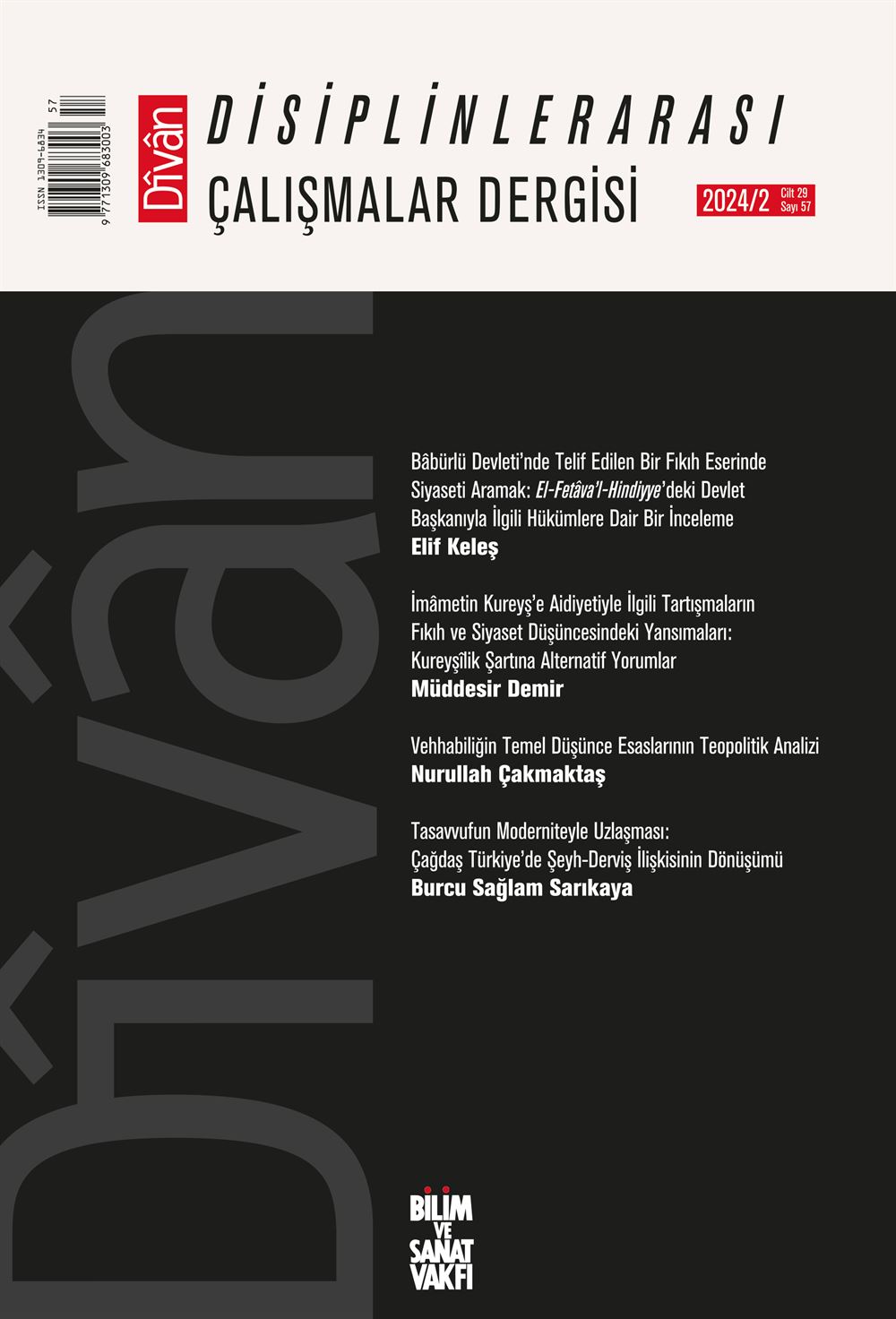Disiplinlerarası Çalışmalar Dergisi Sayı 57
Articles
References to the head of state appear throughout various areas of fiqh, such as zakat, nikāh, talāq, ḥadīth, siyar, adab al-qadi, ikrah, and homicide, with particular emphasis on issues related to Friday and funeral prayers. These discussions reflect both the political and legal norms of the period. The paper aims to explore the relationship between fiqh and politics in al- Fatāwā al-Hindiyya, tracing the rulings that collectively point to the administration of the state.
Elif KELEŞFrom the outset of Sunni tradition, the prevailing view was that the caliph must be of Quraysh descent. However, over time, particularly with the decline of the Abbasid caliphate in Baghdad and the rise of the Turkish-Circassian Mamluks, some scholars began to question the necessity of Quraysh lineage. Despite these critiques, no consensus emerged to overturn this requirement. This study revisits the Qurayshite condition from various perspectives, exploring alternative solutions proposed by scholars to address the legitimacy concerns associated with this criterion. The central argument of the article is that the legitimacy concerns raised by the Qurayshite condition were not entirely disregarded by the ulema. On the contrary, the attempts to address these concerns reflect the ulema's active engagement with and influence on political realities.
Müddesir DEMİRThis study will examine how Wahhabism, which initially emerged as a revivalist discourse aiming to restore Islam to its purest form in response to perceived corruption of beliefs and religious practices among Muslims, developed a political character following its alliance with the Saudi family. It will explore how key principles of Wahhabi thought, such as tawhid (the oneness of God), obedience to the ruler (ulu’l emr), enjoining good and forbidding evil (emr-i bi’l ma’rûf ve nehy ‘ani’l münker), innovation (bid’at), and loyalty and disavowal (el-velâ’ ve’l-berâ’), contributed to this transformation. The study is based on the claim that the core principles of Wahhabism evolved into a theopolitical discourse over time, particularly in relation to this historical alliance. Within this framework, the study aims to demonstrate how these foundational principles of Wahhabism transcended their purely religious meanings and acquired political implications over time.
Nurullah ÇAKMAKTAŞUsing a comparative and historical approach, along with descriptive analysis and partial discourse analysis, the research reveals key strategies within the sheikh-disciple relationship: (1) prioritizing face-to-face interactions, (2) maintaining communication with elders through texts, (3) emphasizing the bond or spiritual union, (4) utilizing modern communication tools such as radio, streaming, television, and books, and (5) incorporating family relations. The paper highlights how modernity and political processes have influenced and diversified the sheikh-dervish relationship, offering an empirical contribution to contemporary studies of Sufism in Turkey.
Burcu SAĞLAM SARIKAYA





